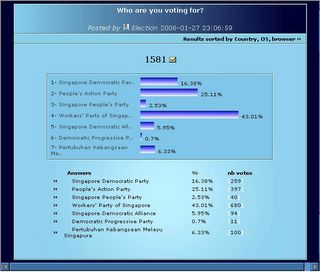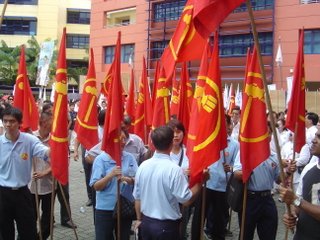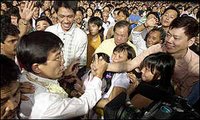Weekend • April 29, 2006
WHO says Singaporeans are apolitical? The buzz on the Internet about the Singapore election should dispel all such talk.
According to a report by Nexlabs, an information management company which scanned election related postings on the Internet, there have been about 1,200 reports on GE 2006 published on blogs since January.
Since the Election Writ was issued the week before, the volume of postings about the election has also gone up. The week before the Writ was issued, about 280 related postings were tracked on blogs over six days; after the Writ was issued, over 400 postings were tracked in the six days that followed.
The most prolific of all the blogs is www.singabloodypore.blogspot.com, which, as of Thursday, had posted 232 articles since the beginning of this year.
The issue of an open society was the most widely discussed election theme on blogs, making up almost 18 per cent of all articles and postings about GE 2006. This differed from issues news websites focused on — defamation suits and the National Kidney Foundation scandal. The most commonly discussed Group Representation Constituency (GRC) on blogs is Sembawang GRC , while the most oft-mentioned Single Member Constituencies were the two Opposition-held wards of Potong Pasir and Hougang. — LIN YANQIN









